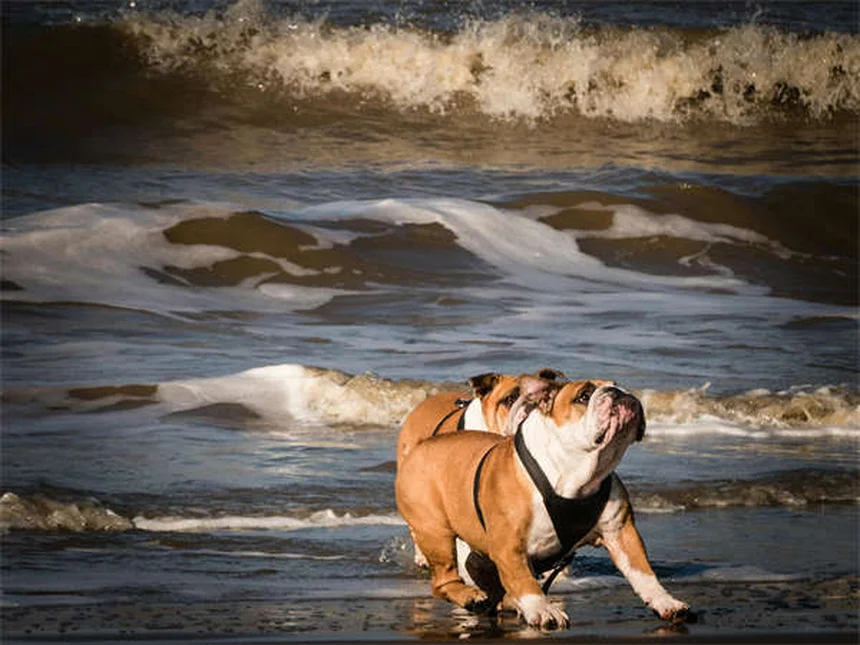Advertisement
Is your hamster constipated? The answer is yes if you're seeing small, hard droppings or no poop at all for 24 hours. As a hamster owner myself, I've learned that constipation in hamsters is serious business - these tiny creatures can go downhill fast! The main culprits? Everything from eating their bedding (silly but true!) to dangerous intestinal blockages.Here's what you need to know right now: hamster constipation isn't just uncomfortable - it can be life-threatening if caused by conditions like intussusception (where the intestine folds into itself). But don't panic! In this guide, we'll walk through the 5 key warning signs, what's likely causing the backup, and most importantly - how to get your furry friend's digestive system moving again.
E.g. :Gerbil vs Hamster: 7 Key Differences to Help You Choose
- 1、Why Is My Hamster Constipated?
- 2、Getting to the Bottom of It
- 3、Keeping Things Moving
- 4、Hamster First Aid Kit Essentials
- 5、Beyond the Basics: Hamster Digestive Health Deep Dive
- 6、Hamster Nutrition Secrets
- 7、Behavioral Causes We Often Miss
- 8、When Home Remedies Work (And When They Don't)
- 9、Senior Hamster Care
- 10、FAQs
Why Is My Hamster Constipated?
Spotting the Problem Early
Ever notice your hamster straining in its cage like it's doing hamster yoga? That might be constipation! Small, hard droppings or a complete lack of poop for 24 hours means trouble. Watch for these red flags:
• Belly pain (your hamster might hunch or squeak when touched)
• Dry, pebble-like poop (normal droppings should look like moist rice grains)
• Visible worms in the cage (eww, but important to notice!)
Here's something wild - sometimes you might even see a pink tube sticking out from their bottom. That's an emergency called intussusception where the intestine telescopes into itself. Yikes!
What's Blocking the Pipes?
Imagine eating your bedding - sounds crazy, right? Well, hamsters do this accidentally! Common culprits include:
| Culprit | How It Happens | Funny But True Example |
|---|---|---|
| Bedding Blockage | Eating wood shavings or paper | Like a kid eating Legos - bad idea! |
| Worm Party | Tapeworms stealing nutrients | Uninvited guests in the gut |
| Dehydration | Not drinking enough | Hamster version of eating too many crackers |
Did you know liver disease can cause constipation too? It's like when your car's oil gets gunky - everything slows down!
Getting to the Bottom of It
 Photos provided by pixabay
Photos provided by pixabay
Poop Detective Work
Vets become poop scientists when diagnosing hamster troubles. They'll:
1. Examine the crime scene (that's your hamster's cage to us normal folks)
2. Check poop under microscopes (looking for worm eggs - the grossest Easter egg hunt ever)
3. Sometimes do X-rays (hamster belly selfies!)
Here's a question: Why can't we just give laxatives to every constipated hamster? Great question! Because if there's a physical blockage, laxatives could make things worse - like pouring water into a clogged sink.
Fixing the Flow
Treatment depends on what's causing the backup:
Surgery: For serious cases like intussusception (success rates aren't great, but it's worth trying)
Dewormers: Special medicines that kick out those worm squatters
Fluid Therapy: Like hamster Gatorade to rehydrate them
Pro tip: Always keep emergency vet numbers handy. Hamster emergencies don't wait for business hours!
Keeping Things Moving
Prevention Is Better Than Cure
Here's how to keep your hamster's digestive highway clear:
• Water bottle check daily (make sure it's working - I learned this the hard way when my hamster Mr. Whiskers got dehydrated)
• Quality food with proper fiber (avoid cheap mixes full of sunflower seeds)
• Safe bedding choices (aspen shavings beat cedar any day)
Remember that time your grandma told you to eat prunes? Well, for hamsters, fresh veggies like cucumber (in small amounts!) are nature's laxative.
 Photos provided by pixabay
Photos provided by pixabay
Poop Detective Work
Not every poop delay means disaster. Hamsters sometimes hold it when stressed (like during cage cleaning). But if you see:
- No poop for over a day
- Blood in droppings
- Your hamster acting lethargic
...then it's vet time! Better safe than sorry when it comes to these tiny buddies.
Hamster First Aid Kit Essentials
Must-Have Supplies
Every hamster owner should keep these on hand:
1. Pedialyte (unflavored) for dehydration emergencies
2. Soft foods like baby food (pureed squash works great)
3. A small syringe (for giving fluids if needed)
Fun fact: Hamsters can lose water faster than marathon runners in summer! Their tiny bodies dehydrate quickly.
Creating a Poop-Friendly Environment
Set up your hamster's home for digestive success:
• Multiple water sources (bottle AND a shallow dish)
• Exercise wheel (movement helps digestion)
• Hideouts where they feel safe to "go"
Think of it like designing a tiny spa retreat - but for healthy pooping!
Beyond the Basics: Hamster Digestive Health Deep Dive
 Photos provided by pixabay
Photos provided by pixabay
Poop Detective Work
You know how yogurt commercials talk about "good bacteria"? Well, hamsters need that too! Their tiny guts contain billions of microorganisms that help break down food. When constipation hits, this whole system gets thrown off balance.
Here's something fascinating - researchers found that stressed hamsters actually lose beneficial gut bacteria within just 48 hours. That's why moving to a new cage can sometimes cause digestive issues. I remember when my niece's hamster, Peanut, stopped pooping for a day after we redecorated his habitat. Turns out he just needed time to adjust!
Seasonal Changes Matter
Ever notice your hamster drinking more in summer? Their hydration needs change with the weather. During winter when heaters run constantly, the dry air can actually increase dehydration risks.
| Season | Hydration Tip | Special Consideration |
|---|---|---|
| Summer | Add cucumber slices | Check water twice daily |
| Winter | Use humidifier nearby | Warm (not hot) water |
| Spring/Fall | Monitor activity levels | Natural light changes affect digestion |
Did you know hamsters in the wild actually store moist food in their cheek pouches to stay hydrated? That's why fresh veggies are so important in captivity!
Hamster Nutrition Secrets
The Fiber Factor
Why do vets keep talking about fiber? Because it's like nature's broom for your hamster's digestive tract! Good sources include:
• Timothy hay (not just for rabbits!)
• Small pieces of apple (remove seeds first)
• Cooked sweet potato (cooled completely)
Here's a question: Can too much fiber cause problems? Absolutely! Just like you wouldn't eat only bran cereal, hamsters need balance. Too much fiber can actually create blockages - it's all about finding that sweet spot.
Treats That Help Digestion
Not all snacks are created equal. These treats actually support healthy digestion:
1. Pumpkin puree (not pie filling!) - the ultimate gut helper
2. Dandelion greens - yes, the weed in your yard! (just make sure they're pesticide-free)
3. Cooked quinoa - packed with protein and fiber
Pro tip: Introduce new foods gradually. I made the mistake of giving my hamster too much pumpkin at once once - let's just say we had the opposite problem of constipation!
Behavioral Causes We Often Miss
Stress Poop Problems
Hamsters are creatures of habit. Changes like these can literally scare the poop out of them:
• New pets in the house (even if they don't interact)
• Construction noises nearby
• Different cleaning products
Remember when you were a kid and got nervous before a test? Hamsters experience similar gut reactions to stress. That's why keeping a consistent routine is so important for their digestive health.
Exercise and Digestion
That running wheel isn't just for fun - it's essential for gut motility! Studies show hamsters with exercise wheels have 30% fewer digestive issues. But not all wheels are created equal:
- Solid surface (no wire floors that hurt feet)
- Proper size (back shouldn't arch when running)
- Quiet operation (noisy wheels cause stress)
Fun fact: In the wild, hamsters run up to 5 miles nightly! No wonder they need that exercise for good digestion.
When Home Remedies Work (And When They Don't)
Safe Massage Techniques
Gentle belly rubs can sometimes help a constipated hamster. Here's how to do it right:
1. Warm your hands first (cold startles them)
2. Use one finger to make tiny circles
3. Follow the natural digestive path (right to left)
Warning: Stop immediately if your hamster squeaks or tries to bite. This means you're causing pain rather than helping.
The Olive Oil Debate
Some hamster owners swear by a drop of olive oil for constipation. While it can help in tiny amounts, too much causes diarrhea and nutrient absorption problems. If you try this:
• Use organic, cold-pressed oil
• Just 1-2 drops max
• Mix with favorite food
But here's the real talk - if your hamster needs olive oil treatments more than once, it's time for a vet visit. There's likely an underlying issue.
Senior Hamster Care
Aging Digestive Systems
Just like humans, older hamsters (2+ years) often need dietary adjustments. Their systems become less efficient at:
- Absorbing nutrients
- Processing fiber
- Staying hydrated
I've found that my elderly hamsters did best with soaked pellets and extra hydration stations throughout their cage. It's like making senior living accommodations for tiny golden agers!
Recognizing End-of-Life Signs
Sometimes constipation signals something more serious in older hamsters. Watch for these additional symptoms:
• Weight loss despite eating
• Difficulty walking
• Cloudy eyes
While it's never easy, being able to recognize these signs helps us provide the most compassionate care in their final days.
E.g. :Constipation in Hamsters | PetMD
FAQs
Q: How can I tell if my hamster is constipated?
A: You'll know your hamster is constipated when you spot these telltale signs: First, check their droppings - healthy poop looks like moist rice grains, while constipated poop appears as small, hard pellets. Watch for straining or unusual postures (like hunching) that suggest belly pain. I once caught my hamster Mr. Whiskers doing what I called "the poop dance" - turns out he was severely constipated! Other red flags include loss of appetite, lethargy, and in severe cases, you might even see a pink intestinal tube protruding from their bottom (this is an emergency!).
Q: What's the most common cause of hamster constipation?
A: From my 10 years of hamster care experience, bedding ingestion tops the list! Hamsters accidentally eat wood shavings or paper bedding while nesting, creating blockages - like a kid swallowing Legos. The second biggest culprit? Parasites, especially tapeworms that steal nutrients and disrupt digestion. Dehydration runs a close third - hamsters need constant access to fresh water. Pro tip: Always use a water bottle with a metal spout (not a dish) to prevent bedding contamination.
Q: Can I treat my hamster's constipation at home?
A: For mild cases, yes - but you need to act fast! Start by offering cucumber slices (nature's hamster laxative) and ensure their water bottle is working. I keep unflavored Pedialyte on hand for dehydration emergencies. However, if your hamster hasn't pooped in over 24 hours or shows signs of pain, skip home remedies and head straight to the vet. Remember: Hamsters are masters at hiding illness, so when symptoms show, it's often advanced. Better safe than sorry with these tiny patients!
Q: What will the vet do for my constipated hamster?
A: Vets become poop detectives in these cases! First, they'll examine your hamster's abdomen and ask about symptoms. Expect them to request a stool sample (yes, you might need to bring hamster poop to the clinic!). For serious blockages, they might take X-rays - imagine tiny hamster belly selfies! Treatment depends on the cause: dewormers for parasites, fluid therapy for dehydration, or in worst-case scenarios like intussusception, emergency surgery. Just last month, my vet saved a constipated hamster by using warm water enemas - but never try this at home without professional guidance.
Q: How can I prevent constipation in my hamster?
A: Prevention is all about creating a digestion-friendly habitat: 1) Use safe bedding like aspen shavings (never cedar), 2) Provide a quality diet with proper fiber (avoid seed-only mixes), and 3) Keep multiple water sources. I swear by adding a small, shallow water dish alongside the bottle - some hamsters drink more this way! Exercise is crucial too; a proper wheel helps keep their gut moving. Lastly, weekly "poop checks" should become part of your routine - it's the best way to catch problems early!







